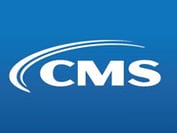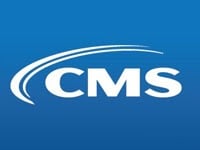CMS Approves Permanent Coverage of Audio-Only Telehealth Services for Mental Illness/SUDs

The Centers for Medicare and Medicaid Services (CMS) has expanded the definition of telehealth services that will be permanently eligible for reimbursement under the Medicare program to include audio-only services for established patients with mental illness/substance use disorders (SUDs) who are unable or unwilling to use video technology.
The final rule on telehealth services for mental illness/SUDs is part of the 2022 Medicare Physician Fee Schedule, which covers updates to physician payment and other regulations regarding Medicare’s Merit-Based Incentive Payment System (MIPS) each year.
The expansion of telehealth to include audio-only services applies only to mental health/substance use disorders. These services had been temporarily reimbursed as part of the government’s response to the COVID-19 public health emergency, beginning with the presidential emergency declaration in March 2020. The rule will be published in the Federal Register on November 19 and goes into effect in January 2022.
The rule is an enormous victory for patients and psychiatrists for which APA had advocated unceasingly for months.
In July 2021 CMS proposed that in-person visits take place every six months after the initial telehealth encounter; in the final rule, the administration extended it to every 12 months, with exceptions at the discretion of the treating psychiatrist. Moreover, under the new rule, CMS expanded the definition of the patient’s home residence to include locations beyond the home, such as a homeless shelter or places a patient may need to go to have privacy.
“This is a real win for our patients,” said APA CEO and Medical Director Saul Levin, M.D., M.P.A. “The expansion of telehealth services under the public health emergency has transformed the medical landscape and dramatically expanded access to mental health services during an extremely difficult period. APA advocated for permanent payment for audio-only telehealth services and argued successfully that the treating psychiatrist, together with the patient, should decide whether an in-person visit is required.
“We are grateful to CMS for this rule, which will prove invaluable to our patients well beyond the public health emergency,” Levin said.
CMS approved a reduction to the conversion factor (the dollar figure used in the physician payment formula to determine overall payment) of $1.30. The change is partly the result of a decision made last year that requires improvements in payment for Evaluation and Management Services to be offset in 2022 to maintain budget neutrality.
According to an AMA analysis of the impact of the proposed formula changes on different medical specialties, psychiatry will experience an overall reduction in payment of 3.1%; how individual practices will be affected will depend on practice and billing patterns.
For complete coverage of how the changes might impact psychiatrists, see an upcoming edition of Psychiatric News. For related information, see the Psychiatric News article “CMS Proposes Permanent Payment for Telehealth Services Allowed During Pandemic.”
Help Push the 988 Crisis Hotline Over the Finish Line
A dedicated phone number for individuals in crisis or experiencing suicidal thoughts—988—goes into effect July 16, 2022, but many states are not prepared for its implementation, putting people’s lives at stake. Join APA and other coalition organizations for “REIMAGINE: A Week of Action to Reimagine Our National Response to People in Crisis” during the week of November 15 to learn about what needs to be done to ensure that the 988 crisis hotline is implemented across the nation. Free, virtual events will be held throughout the week; they will highlight personal stories and how to coordinate federal and state advocacy efforts to establish and fully fund a more effective crisis response. Register today and join in the effort to build a better, more equitable crisis system for all people in this country.





